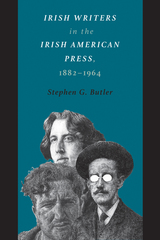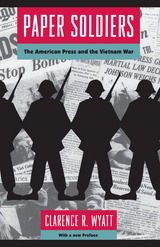
Highlights in the History of the American Press was first published in 1954. Minnesota Archive Editions uses digital technology to make long-unavailable books once again accessible, and are published unaltered from the original University of Minnesota Press editions.
The articles collected in this volume present a vivid panorama of American journalistic history from its antecedents in the English ballad singers to the press giants of modern times. Since there is probably no single force that has played a greater role in the history of America than its newspapers, the history of journalism tells, in large measure, the story of this country's political, social, and economic development. Therefore, this book of readings offers much to the students of the American scene, past and present, whether they are general readers or specialists in journalism, history, American studies, or any of the social sciences.
The 27 articles included here have been chosen particularly for their readability and authenticity. They are by many different writers and are from a wide variety of periodicals published over the past 100 years. They are arranged according to six historical periods, covering the rise of the English press, the Colonial press, the nationalistic press of Revolutionary times, the popular press of the Jacksonian democracy, the transition press following the Civil War, and the modern era of mass circulation. An introductory essay for each group of articles places the individual studies in historical perspective and examines briefly the journalistic events not covered in detail by the articles themselves. The article authors include such notable names in American letters as Gamaliel Bradford, Will Irwin, William Allen White, John Dos Passos, and Henry F. Pringle.
The coherent presentation of this diverse material should help anyone interested in the American newspaper get a better view of its broad scope, its lively color, and its profound influence on the course of history.

Irish Writers in the Irish American Press spans the period from Oscar Wilde's 1882 American lecture tour to the months following JFK's assassination and covers the century in which Irish American identity was shaped by immigration, religion, politics, and economic advancement. Through a close engagement with Irish American periodicals, Butler offers a more nuanced understanding of the connections between Irish literary studies and Irish American culture during this period.

"Wyatt makes the Diem period in Saigon come to life—the primitive communications, the police crackdowns, the quarrels within the news organizations between the pessimists in Saigon and the optimists in Washington and New York."—Peter Braestrup, Washington Times
"An important, readable study of the Vietnam press corps—the most maligned group of journalists in modern American history. Clarence Wyatt's insights and assessments are particularly valuable now that the media is rapidly growing in its influence on domestic and international affairs."—Peter Arnett, CNN foreign correspondent
READERS
Browse our collection.
PUBLISHERS
See BiblioVault's publisher services.
STUDENT SERVICES
Files for college accessibility offices.
UChicago Accessibility Resources
home | accessibility | search | about | contact us
BiblioVault ® 2001 - 2024
The University of Chicago Press









